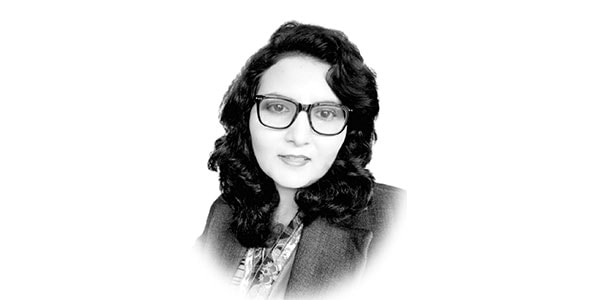Ibn-e-Mariyam hua kare koi
FEMININE beauty has been the focus of our urdu literature over centuries. Hence the women are just treated as a source of glamour and delicacy.
In the national language of Pakistan, Urdu, women are given the symbolic name of sanaf-e-Nazak (The fragile gender) due to its physical vulnerabilities. The concept has been used as an expression to illustrate love in romance.
However, we must step out of these ancient and traditional tales and step into the present where women are not merely the subject of gender delicacy or ghazal but are equally involved in the journey of social development.
The role of women must be duly acknowledged. The proportion of women in the total population of Pakistan is more than 51% and no society can ever develop by ignoring the majority of its population.
Against this background, when we look at the graph of Pakistan’s backwardness in the United Nations, the biggest reason is that we have not invested directly in the development of this human capital of the country.
A study of the World Economic Forum’s (WEF) 2021 Gender Gap Index report shows that Pakistan ranks 153rd out of 156 countries in terms of gender equality and Pakistan ranks one rank above Afghanistan in Asia.
While all other SAARC countries are at a better level than Pakistan, this requires the fact that we need to do a lot of work for gender parity in Pakistan.
Here we have to keep in mind the fact that if equal opportunities are provided across the board then there is immense potential in Pakistani women which is not being properly utilized in the right direction.
You may have noticed that in our country every year girls are always top achieving position in Matriculation, Intermediate and University examinations.
Overall more girls are becoming doctors than boys which is a testimony to their ability and intelligence.
At present millions of women doctors in the health sector in Pakistan are working day and night to serve humanity and despite the budget and innumerable problems of health infrastructure, significant work has been done in the field of world class health facilities especially in the field of obstetrics and maternity.
This is an unprecedented achievement. On this occasion, I would like to share my personal experience with everyone, the aim of which is to make women aware of the fact that high quality treatment is being provided free of cost in our government hospitals but the overall impression is that That you can get better treatment in a private hospital even though the majority of our population cannot afford a private hospital.
My personal opinion is that whoever invented the word Messiah for the doctors was not wrong.
The doctor works to save human lives and give new life. When we fall ill, the rehabilitation of your health and the elimination of suffering is completely in the hands of the doctor after Allah.
According to Mirza Ghalib Alas, there comes a Messiah (ibn-e-mariyam hue kare koi) To heal up my pain & sufferings. (mere dukh kî davâ kare koî)
When you get sick, all the colours and joys of the world begin to fade and man is ready to give up every facility of life in exchange for health.
Something similar happened to me. I faced some problems regarding my health. Had to. This bitter experience brought me closer to Allah than ever before who knows the condition of hearts and is aware of every hidden and visible disease and also gives healing.
However, it is certain that Allah Almighty in difficult times Helps you through your servants who become your resource.
My first resource in this regard was our DG Health Punjab Dr Haroon Jahangir Khan with whom we have a very respectful relationship.
It is his compassion that always guides us in the right direction in matters of health. Dr Haroon Jahangir Khan referred me to Dr Rubina Sohail, a renowned gynecologist of the city.
In this regard, I visited Rubina Sohail’s clinic. Dr Sahiba using her professional skills did a complete check up on me then told me about a surgery and reassured me that there was nothing to worry.
Dr Rubina Sohail referred me to her colleague Dr Asifa Noorin (Services Hospital Gynae Ward 3) for immediate resolution of the issue.
Dr Asifa proved to be a very high professional. She assured me in her very compassionate manner that everything will be fine. Dr Asifa not only completed my surgery with her high professional skills.
Along with Dr Asifa, I am also grateful to Dr Samarin, Dr Amna, Dr Rida, Dr Sundas and Dr Saman Rai who took care of me like a family member.
And other people get inspired by it too. I pray to God that every doctor of our country should perform his duties in the same way.
One of the purposes of writing this column is to raise awareness at the national level that our doctors are our national human asset. Pay the credit where it is due.
—The writer is a public servant, currently serving at Management and Professional Development Department, Government of the Punjab.










